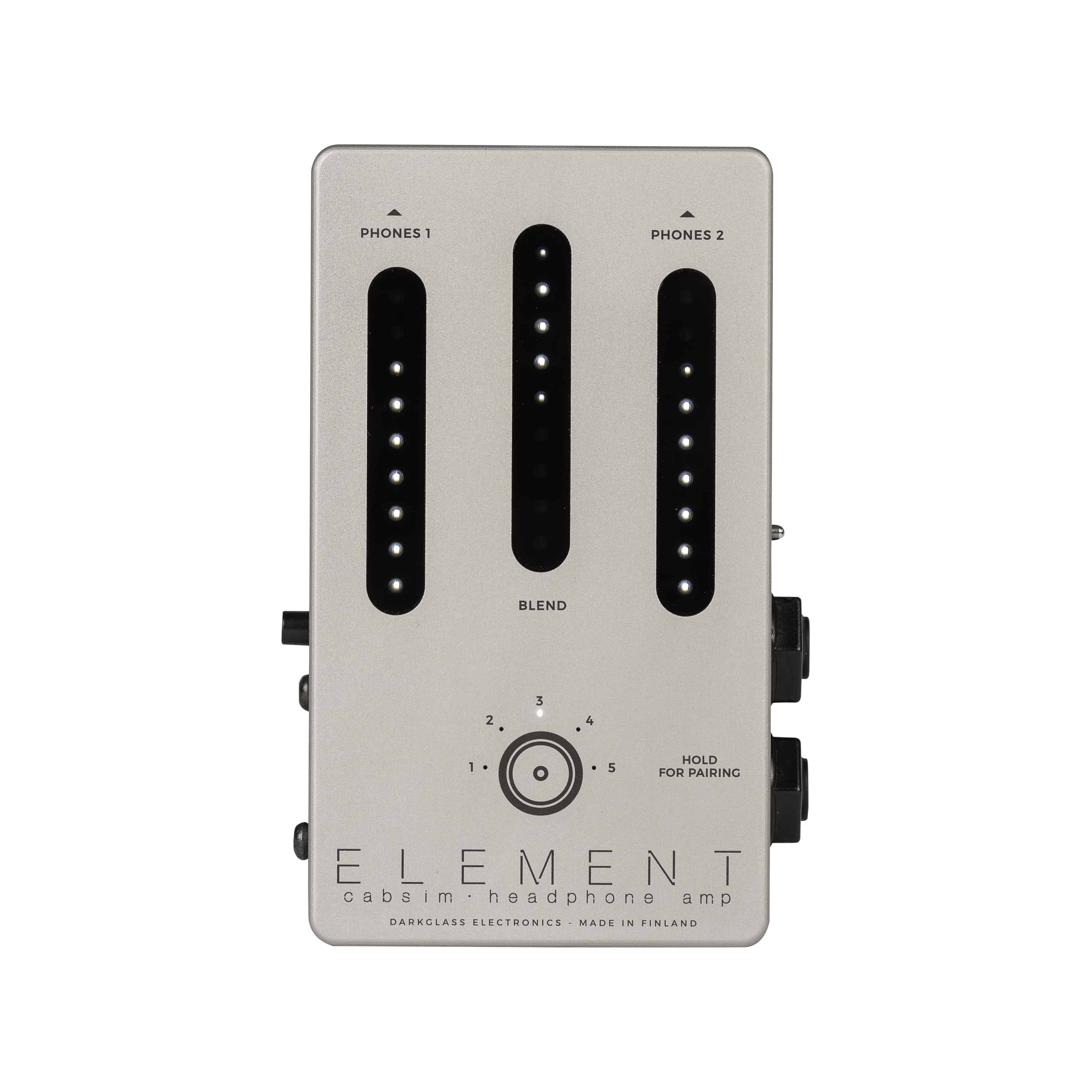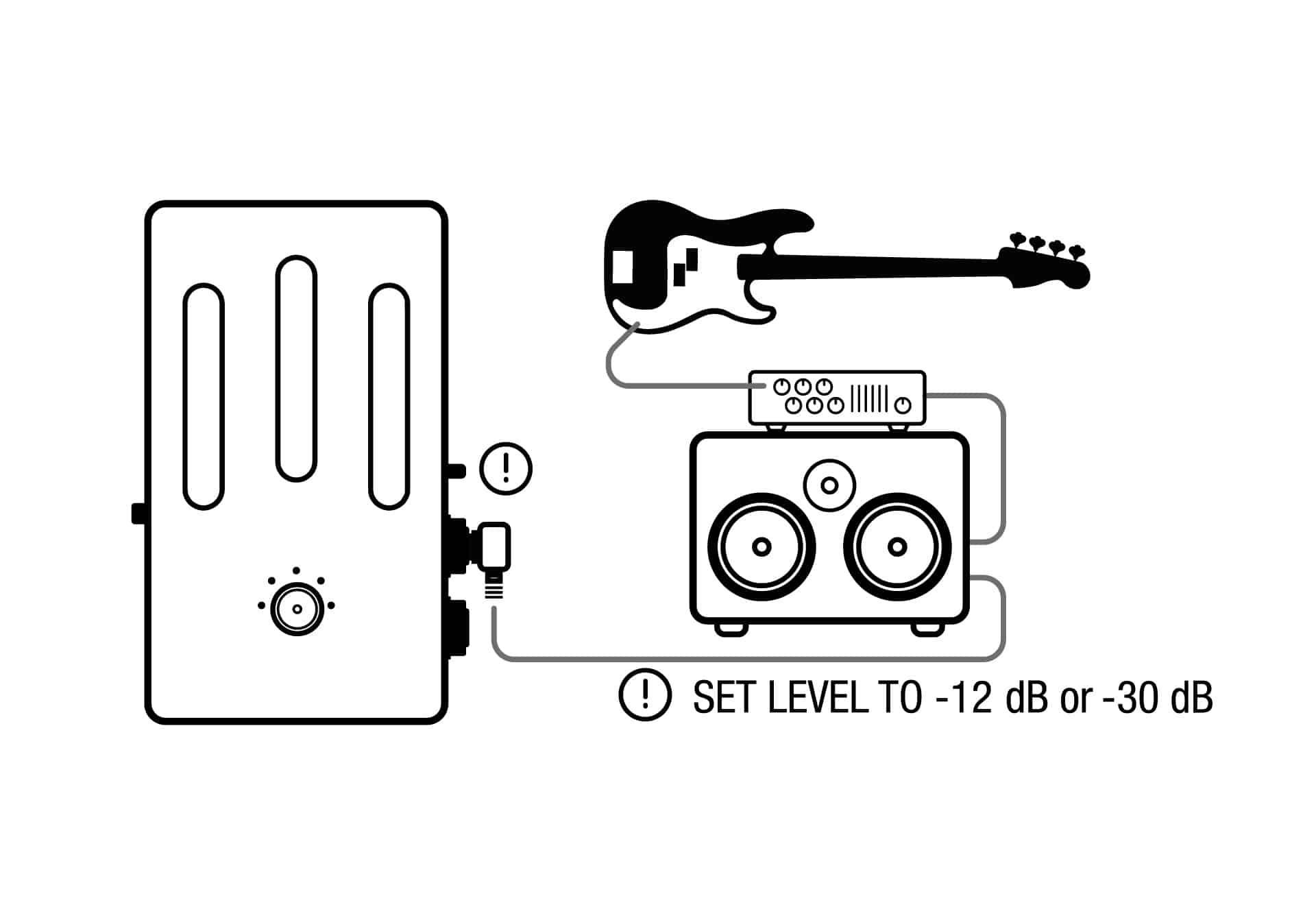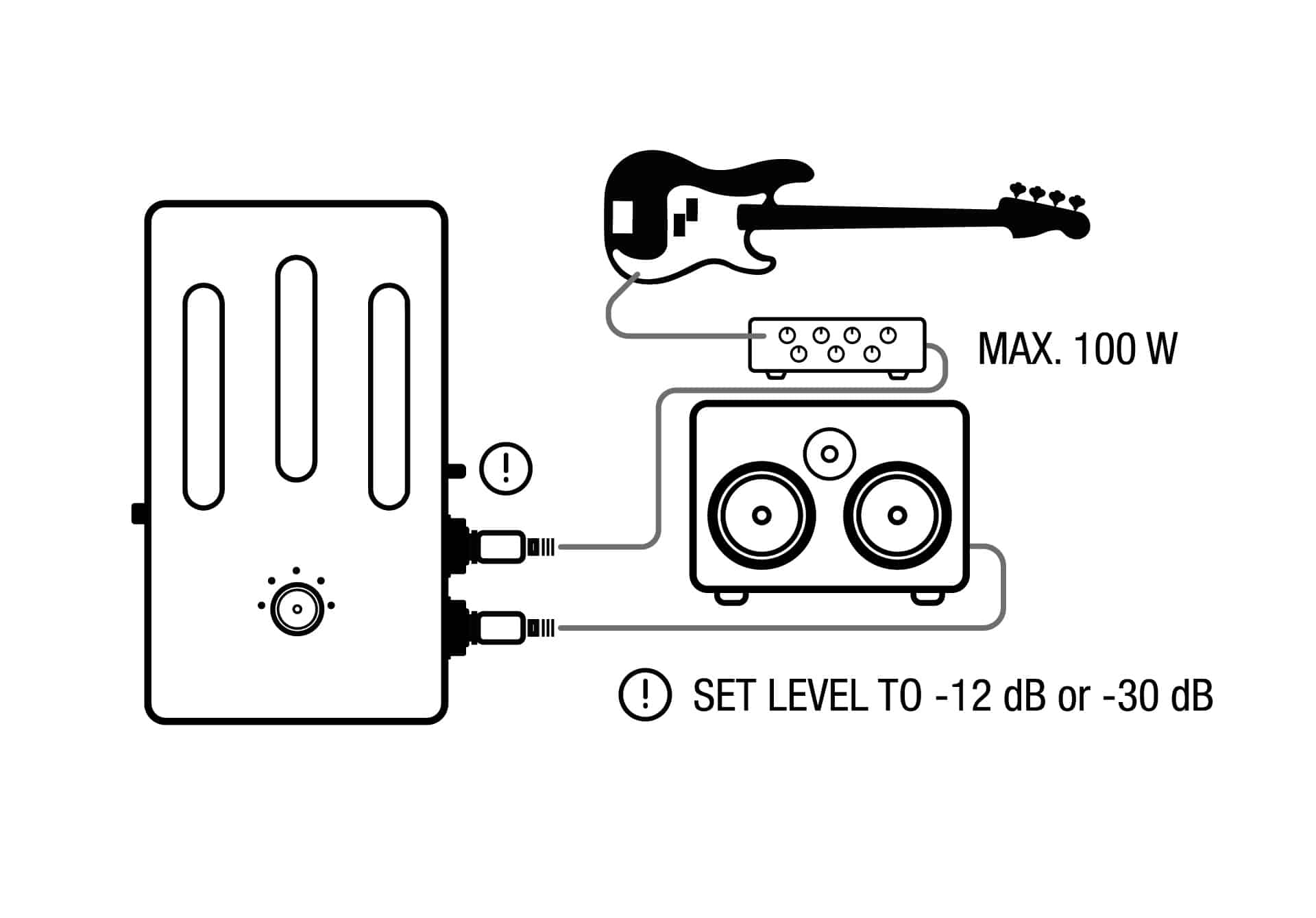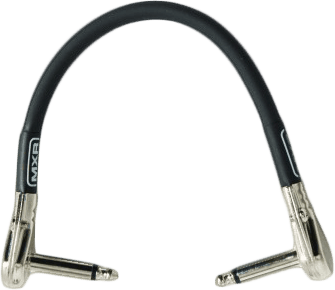
Darkglass Element
In stock
Headphone Amp and Cabinet Simulator
With a uniquely innovative approach, the Element incorporates cutting edge design and technology into a seemingly simple device. On the surface, this useful headphone amp is designed to handle the very core task of every musician – practice. But the Element goes much further than that, making it a crafted tool to expand your musical reach.
• HQ Headphone Amp – drives 2 sets of headphones
• IR Cabinet Simulations
• Free Darkglass Suite – for loading additional IRs via USB or Bluetooth
• Bluetooth and 3,5 mm Aux connections – allows jamming with backing tracks
• Tough metal housing with unique control surface
• Powered by 9-12 V DC PSU (centre -, 2,1 mm, ~ 250 mA current draw)
Inspired by the touch sensor technology used in our Hyper Luminal·Compressor, this non-conventional pedal is completely minimalistic with a plain surface and zero knobs. Element utilises three fullytactile slider potentiometers, each with positioning LEDs. These not only render the Element visually appealing, it also makes it extremely intuitive to use.
Out of the box, Element offers a bank of 5 cabinet simulations and the ability to add many more through the Darkglass Suite, via USB or wirelessly via Bluetooth. In addition to a continuously increasing database of Impulse Responses, the Darkglass Suite also has the potential to load any custom IR that you may have, from different sources. Plus, as time goes on, there will be future upgrades that further increases the functionality of the device.
Fully compatible with bass, electric guitars or indeed any kind of instrument, this headphone amplifier is the complete device for instrumentalists wanting/requiring silent practice at home or as the end of a pedalboard signal chain. You even can even hook it up to an amplifier output (with a separate load or speaker cabinet connected) and send the signal out to the PA or to recording systems via the XLR DI output.
Add in the latest Bluetooth A2DP technology to listen to backing tracks from your smartphone or tablet while playing, rehearsing or studying, two headphone outputs to allow interaction with other players and the Element becomes one of the most helpful tools you will have to help you make music.
Element w/ pedalboard
Connect your instrument to your pedalboard as you normally would and add the Element at the end of the signal chain. Use the input labelled “INSTRUMENT IN” on the Element. You can now choose the impulse responses in slots 1-5 or the bypass signal. From here, the signal is passed through to the XLR output and via the blend and volume controls to the headphone outputs.
Element w/ amp & speaker cabinet
Note: The Element does NOT act as a loadbox! Always make sure your amplifier is connected to a suitable load!!!
The Element is built to work with amplifiers with a maximum output of 900 W. For the safest operation, it is advised to connect the Element after your speaker cabinet from your speaker cabinet’s parallel output connector. Use the input labelled “AMP IN” on the Element. You can now choose the impulse responses in slots 1-5 or the bypass signal. From here, the signal is passed through to the XLR output and via the blend and volume controls to the headphone outputs.
If the amplifier’s maximum output is 100 W, the Element can be connected between the amplifier and the speaker cabinet. Use the input labelled “AMP IN” for the amplifier and the output labelled “SPEAKER OUT” to connect the speaker cabinet to the Element. You can now choose the impulse responses in slots 1-5 or the bypass signal. From here, the signal is passed through to the XLR output and via the blend and volume controls to the headphone outputs.
If you are using a Darkglass amplifier with a class D poweramp, you have the option to connect the amplifier straight to the Element without using a speaker cabinet or an external load. Use the input labelled “AMP IN” on the Element. You can now choose the impulse responses in slots 1-5 or the bypass signal. From here, the signal is passed through to the XLR output and via the blend and volume controls to the headphone outputs.



Specs
Knobs
- Phones
- Two touch-sensitive volume control sliders, one for each headphone output
- Blend
- A touch-sensitive slider to set the blend between the main input (Instrument/Amp in) and the backing track
Ground Lift
- Ground Lift
- Yes
Outputs
- Two 6.3 mm jacks
- Balanced/unbalanced instrument input and output or Amplifier input and speaker (through) output
- Aux In
- For music
- Bluetooth input
- For wireless backing/click tracks
- Headphones x2
- Outputs
- Balanced XLR
- Instrument output to the PA or computer
- USB
- One USB-C port for transferring impulse responses and firmware XLR output updates
- Input impedance
- 2 M ohm, 18 k ohm, 12 k ohm
- Dynamic range
- 105 dB
- Sample rate/ Resolution
- 48 kHz @ 24-bit (Latency < 2,2 ms)
- Impulse response
- 5 impulse slots plus bypass setting
Toggle switches
- Cab SIM
- Toggle the cabinet simulation on/off on the Direct Output. This switch completely bypasses all digital circuits and allows you to get a zero-latency signal when needed.
Dimensions
- Dimensions
- 11,1x6,4x3,5
- Weight
- 0.245kg
Power
- Power
- 9-12 V DC PSU (centre -, 2,1 mm, ~ 250 mA current draw)
